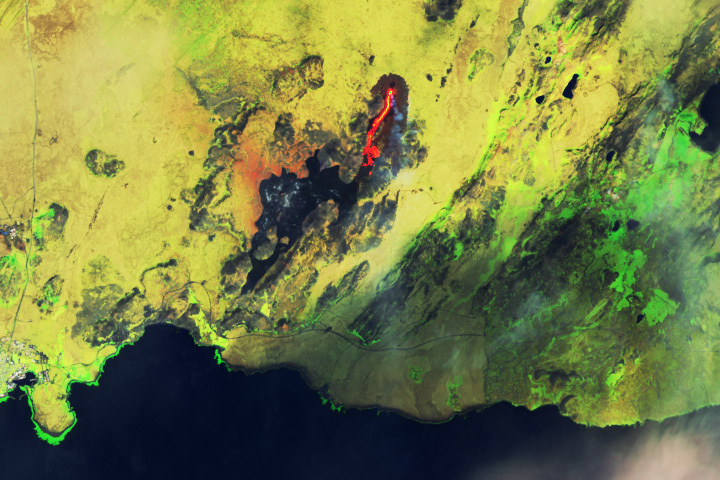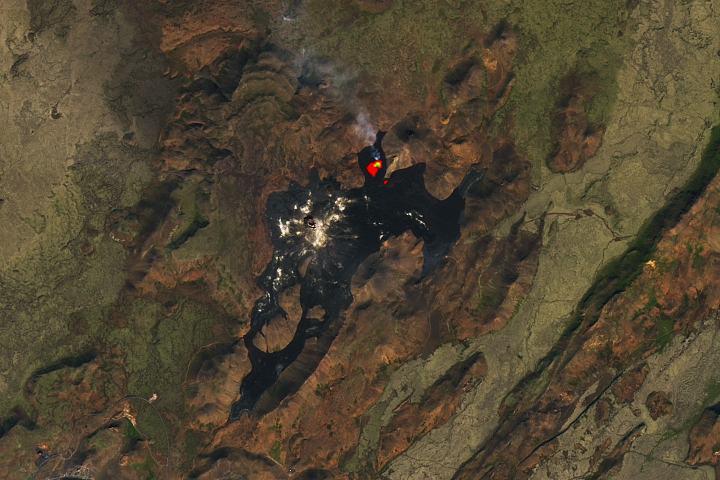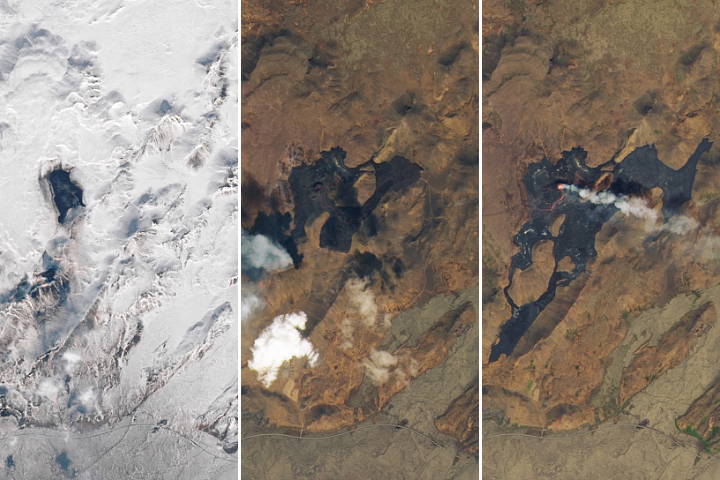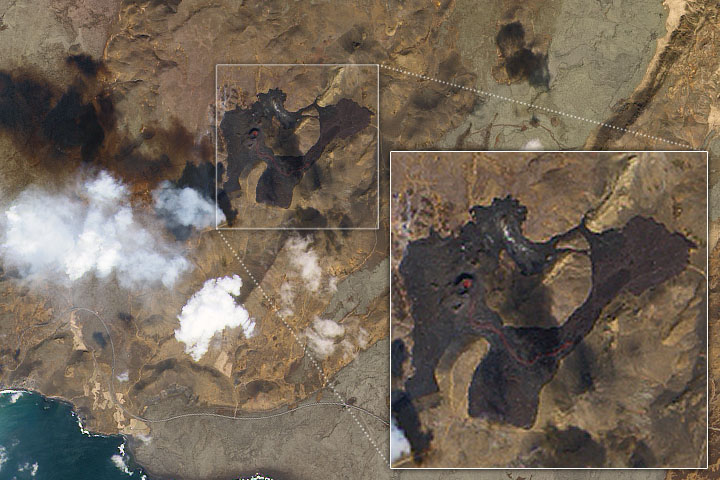

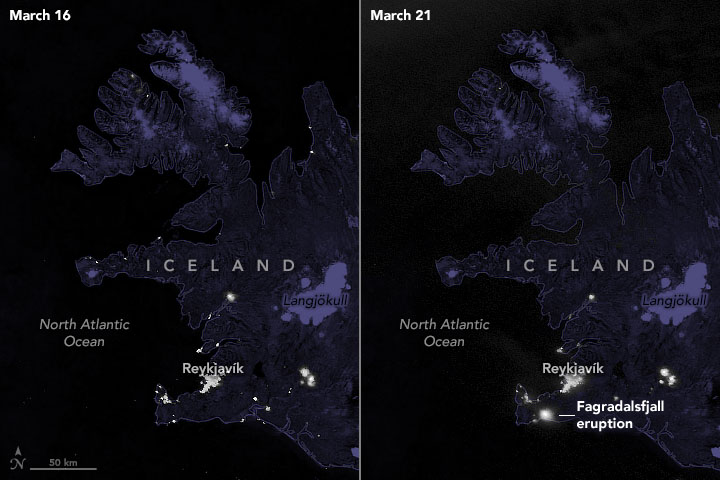
Swarms of small earthquakes in February 2021 on Iceland’s Reykjanes peninsula had experts warning that magma was moving beneath Geldingadalur valley and could soon erupt. Late on March 19, an eruption officially began as lava broke through the surface near Fagradalsfjall, one of several shield volcanoes on the peninsula.
While small in comparison to other recent eruptions in Iceland, the event was bright and large enough for NASA and NOAA satellites to observe. On March 21, 2021, the Suomi NPP satellite acquired a nighttime view of western Iceland through a thin layer of clouds. Reykjavik, Reykjanesbær, and other cities appear as bright spots in the image. The eruption appears as a new patch of light on the southwestern part of the island. For comparison, the image on the left shows the same area a few days before the eruption.
The images were acquired with the day-night band of the Visible Infrared Imaging Radiometer Suite (VIIRS), which detects light in a range of wavelengths from green to near-infrared and uses filtering techniques to observe faint signals such as fires, electric lights, and the glow emitted by lava. During the day, the Moderate Resolution Imaging Spectroradiometer (MODIS) acquired natural-color and false-color imagery as emissions from the eruption slightly brightened clouds in the area.
Lava poured from a fissure that was initially 500 to 700 meters (1,600 to 2,300 feet) long. It successively built up and then broke down mounds of cooled lava called spatter cones. Aside from crowds of onlookers and a possible archaeological site, not much has been threatened by the lava so far. Neither ash or gas emissions have been problematic either. Nonetheless, the Icelandic Meteorological Office is monitoring the volcano and is sharing the results of a forecast model.
NASA Earth Observatory images by Joshua Stevens, using VIIRS day-night band data from the Suomi National Polar-orbiting Partnership and imagery from the Earth Observatory's Blue Marble collection. Story by Adam Voiland.
Image of the Day Land Volcanoes Remote Sensing
In an eruption not far from Reykjavik, lava poured from spatter cones along a new fissure on Reykjanes peninsula.
Image of the Day for March 23, 2021
The volcano in Iceland erupted in 2021, 2022, and 2023 after more than 800 years of dormancy.
